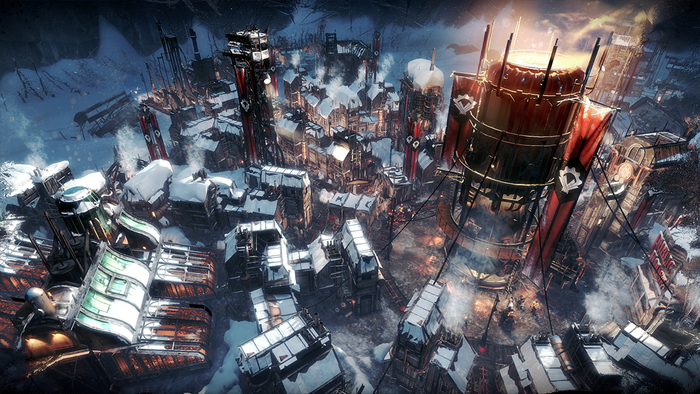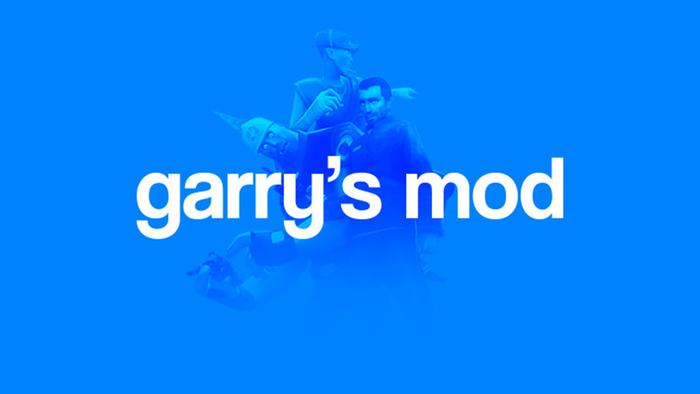
Featured Blog | This community-written post highlights the best of what the game industry has to offer. Read more like it on the Game Developer Blogs.
Legal battles have been (and are) integral to the development of the modern video games industry. Lawyer Jas Purewal kicks off a period series of posts looking at legal battles in the industry, starting with the Tetris saga between Nintendo and Atari...

[This post is reproduced from Gamer/Law, the games law blog. You can speak with Jas via Twitter: www.twitter.com/gamerlaw]
Legal battles have been (and still are) integral to the development of the modern video games industry. So, I thought that I'd write a periodic series of posts looking at major legal battles in the industry, kicking off with the Tetris saga between Nintendo and Atari, which started around this time in summer 1989...
A quick summary of Tetris:

This is Tetris (specifically the Gameboy version, chosen because it was the first Tetris game I ever played). If you do not recognise it immediately, then you can read more here (while putting in your fingers in your ears to block out my loud tutting at you).
The facts
I'd love to give you the full and torturous facts of the long-running Tetris saga, but Atari HQ have already written it up here. The (legally) interesting fact that emerges is that the battle over the Tetris IP was not an intellectual property issue at all - this was a fight over contracts and contractual interpretation. I'll try to summarise it briefly below (with the proviso that the facts are incredibly complex, so if anyone has any corrections/insights into all this, let me know):

In June 1985, Alexey Pazhitnov created Tetris on an Electronica 60 while at the Moscow Academy of Science's Computer Center. It was soon after ported to the IBM PC and then to the Apple II and Commodore 64.
During the mid 80s, the game found its way to the West, where a UK developer tried to acquire the rights to Tetris and (even though he was unsuccessful) he 'sold' the rights on to Mirrorsoft in the UK and Spectrum Holobyte in the USA (both companies were controlled by the infamous Robert Maxwell). The game was released in the West to rave reviews.
In 1988, Mirrorsoft sub-licenced Bullet Proof Software to make Tetris games in Japan, while Spectrum sub-licenced Atari with the same rights for Japan and North America. Cue infighting between the two Maxwell companies (which reportedly Maxwell himself had to be involved in to sort things out).
Atari's subsidiary Tengen released arcade and NES versions of Tetris (known as "TETЯIS: The Soviet Mind Game"). Bullet Proof also released a Tetris game for the Famicom (the Japanese version/name for the NES). Nintendo became very interested in releasing Tetris for the forthcoming Gameboy and in controlling Tetris on the NES, too.
There was by this stage a big licensing mess over who controlled which rights in the Tetris game across different platforms. In early 1989, all the interested parties started negotiations with each other and with the Russian entity (known as Electronorgtechinca, or Elorg) which now asserted it owned all the Tetris rights. Various offers were put forward to control the Tetris IP.
Nintendo cut the Gordian knot by reportedly making a massive offer to Elorg for all the rights in Tetris (as well as Elorg's support in the inevitable future lawsuits). Elorg accepted.
In March 1989, Nintendo then served a cease and desist letter on Tengen to force it to stop selling its versions of Tetris on the NES. Tengen responded in kind.
Tengen, Atari and its parent (the Maxwell empire) didn't take this lying down. They began lobbying for control of the IP and, at the same time, Tengen applied to register its copyright of the Tetris IP.
April 1989: Tengen sued Nintendo of America (NOA), and NOA countersued, over the issue of ownership of the Tetris IP.
June 1989: the Tengen v NOA court case began in the USA. The issue essentially was the proper interpretation of one of the original contracts signed by Elorg which licenced out some of the Tetris IP rights.
The US court decided that, since Mirrorsoft nor Spectrum never had held rights in the Tetris IP (see above on that one), they did not have any Tetris rights to grant to Atari/Tengen. The court therefore found in NOA's favour and granted an injunction requiring Tengen to halt sales of its Tetris games.
July 1989: Nintendo released Tetris for the NES and (soon after) for the Gameboy. The Gameboy version alone sold over 33 million units. In financial terms, Nintendo had comprehensively won the battle for Tetris.
The legal issues dragged on for some time, focusing in particular on Atari's release of a Tetris arcade machine. Other game companies also came on to the scene from time to time (such as Sega's release of a Tetris game for the MegaDrive) but over time the link between Ninteno and Tetris became well-estabished.
A quick footnote: in 1996 Pazhitnov, who famously had made virtually no money from the exploitation of Tetris so far, put together The Tetris Company LLC to control the Tetris IP going forward. It still operates today (most recently, it forced Google to remove Tetris clones from the Android market).
 Was this a once-off, never to be repeated kind of battle?
Was this a once-off, never to be repeated kind of battle?
No.
The Tetris battle came at a formative time in the modern video games industry and helped to shape the fortunes of Atari, Nintendo and other games giants. It was also largely a product of the confused way in which legal matters were sometimes handled in the games industry at that point. Since then, the games industry has of course become a lot smarter at handling control of games IP from both a contractual and IP perspective.
But, that doesn't mean that the legal issues raised in the Tetris saga have been put to rest. Contractual disputes are endemic in all industries, including the games industry. In fact, since Tetris, there have been huge numbers of contractual disputes over games and they will keep on arising in the future, since all contracts for particularly valuable products become particularly susceptible to abuse.
Need an example? Here you go: Jason West and Vince Zampella v Activision. This is an ongoing US legal battle for the control of the Modern Warfare IP and, in legal terms, it is a contractual battle just like the Tengen/Nintendo lawsuit. Clearly, there are factual differences between the two lawsuits, but maybe not as much as you might think: imagine if West and Zampella had released their own competing version of Modern Warfare after they left Activision, meaning that a judge would have to decide whether the IP resided with West/Zampella or Activision (just as the judge had to do between Tengen and Nintendo).
More generally, bear in mind also that the games market is still fragmented over multiple platforms and there is therefore a real potential for different companies to release very similar games over different (or even the same) platform in the future - in fact, we can already see this happening in the mobile and social games sectors of the games market.
So, with that in mind...
Lessons learned from the Tetris saga:
PROPER LICENCING IS ESSENTIAL. The problems arose largely because several people realised that Tetris was hot stuff at the same time and tried separately in different ways to get the rights, which resulted in differing agreements saying different things. Cue legal uncertainty -> lawsuits.
What should have happened: the first person on the scene or the highest bidder (as appropriate) should have secured a comprehensive and exclusive licencing agreement, covering all territories and all platforms using a combination of specific and general language, stating expressly what the licencee can and cannot do, setting out clearly the operative provisions (royalty payments etc), a dispute resolution mechanism and - crucially - a series of warranties, representations and indemnities to give the licencee comfort that he has an exclusive licence and can sue both the licencor and the third party if any other licences are handed out without his approval.
If you do find that an infringing licence has been granted, or that a third party is straightforwardly knocking off your IP without a licence, then - as Nintendo did here - you will need to take legal action promptly to protect your IP/contractual rights.
Leaving the legal battle to one side, make sure you win the financial battle (selling more units of your game than the other guy does with his) as well as the PR battle (making sure everyone knows the game is yours, not his).
Image credits:
- Pic 1: Grebz.fr
- Pic 2: Loot Ninja
- Pic 3: WikiMedia
Follow us at http://www.twitter.com/gamerlaw or subscribe to our weekly email newsletter here
Obligatory legal stuff:
© Jas Purewal 2010. Gamer/Law and this post are intended only as a means of bringing news of games and technology law and practice to its readers; it is not intended to provide legal advice and is no substitute for it. If you'd like to contact us concerning the contents of this blog or any other games or technology law-related topic, you can email here or tweet GamerLaw. Thanks.
Read more about:
Featured BlogsAbout the Author(s)
You May Also Like







